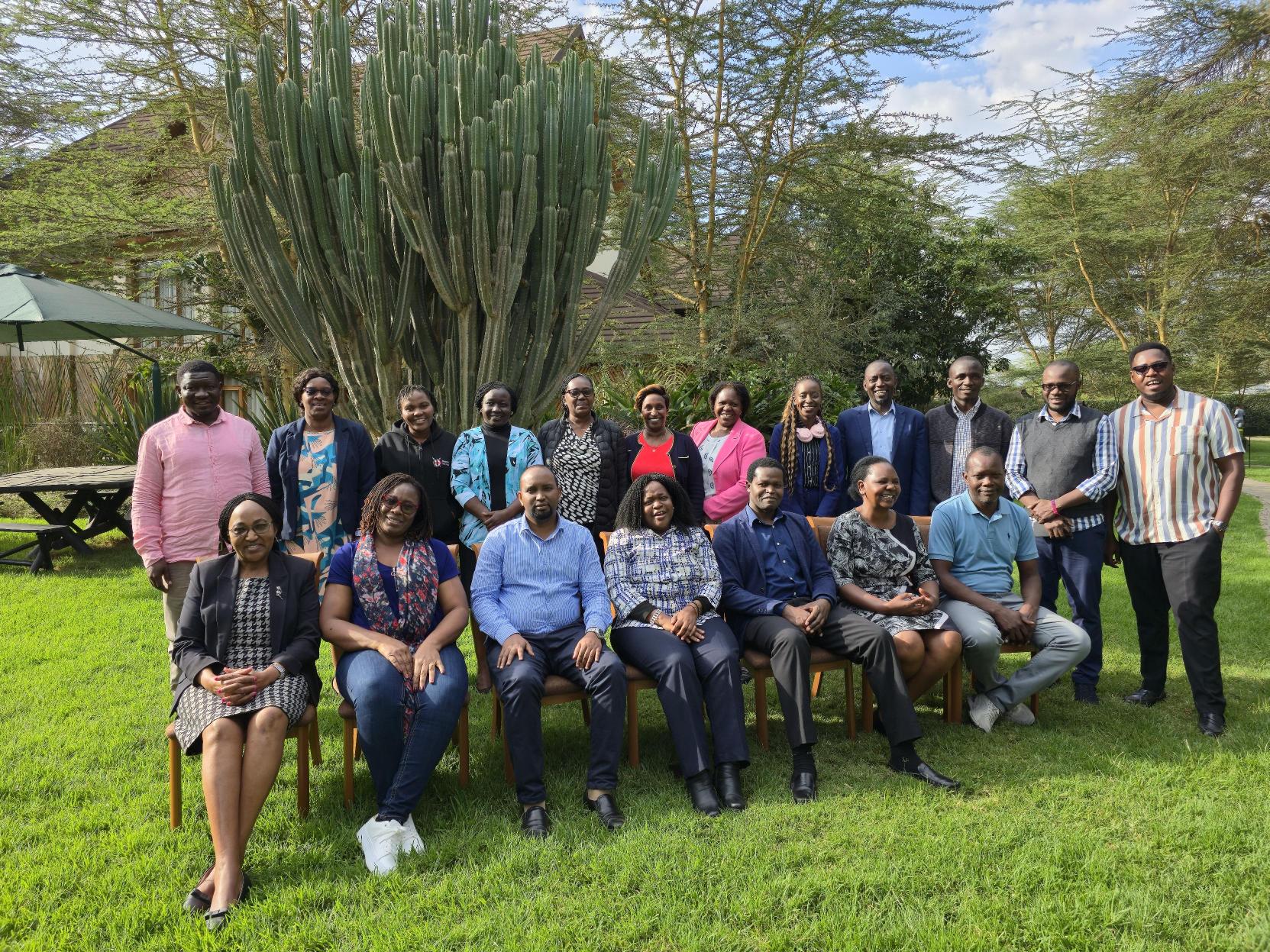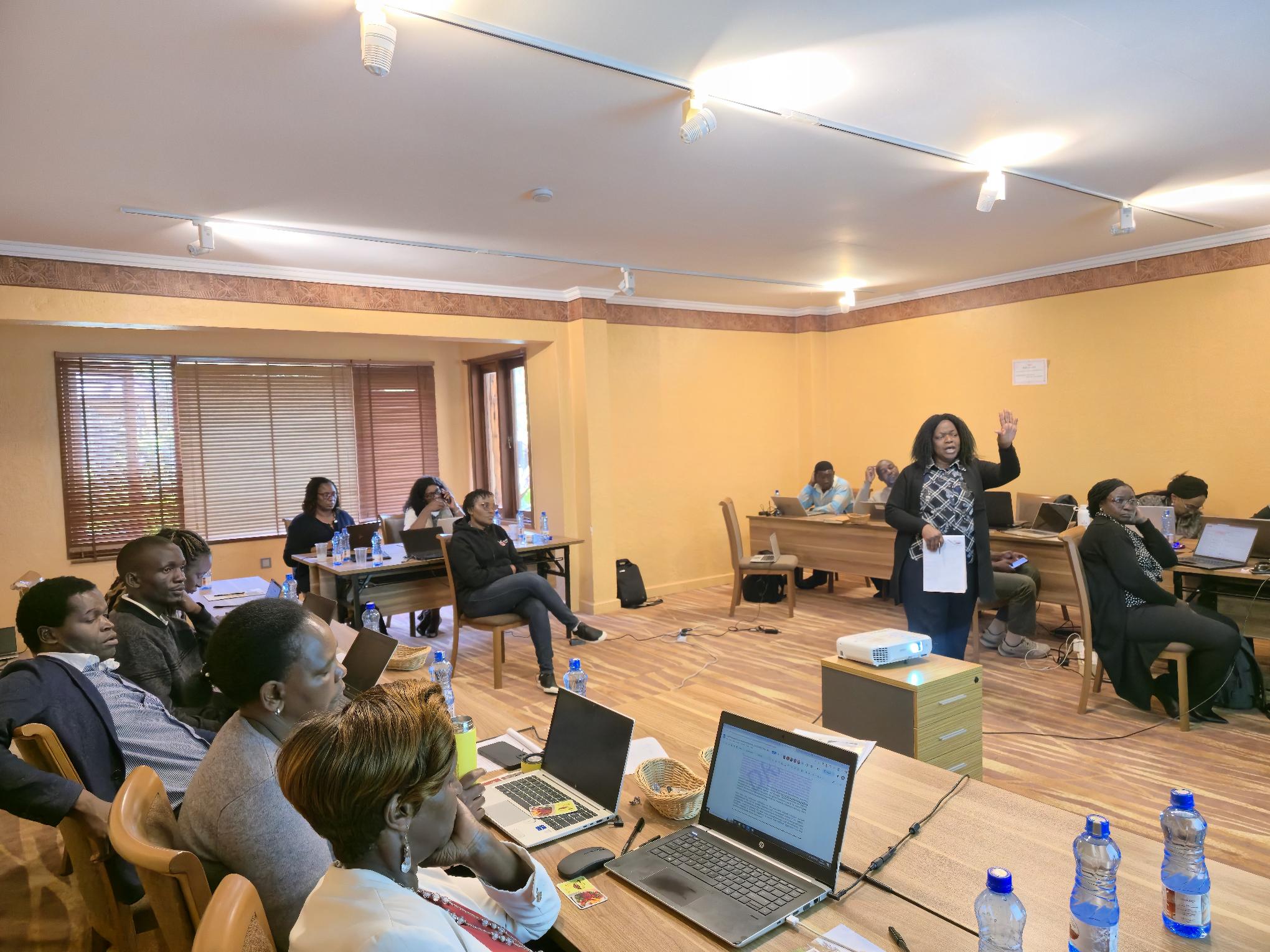
Why This Policy Review Matters
In mid-September, 2025, stakeholders from across Kenya’s food, health, trade, and development sectors gathered at Sawela Lodges in Naivasha to review and revise the Draft National Food and Nutrition Security Policy (NFNSP).
The meeting, convened by the Ministry of Agriculture and Livestock Development with the support of the Food and Land Use Coalition (FOLU), the Global Alliance for Improved Nutrition (GAIN) and the World Resources Institute (WRI), saw participation from experts in agriculture, livestock, health, education, trade, arid and semi-arid lands, fisheries, and gender. This multi-sectoral gathering contributed to the ongoing comprehensive review of Kenya’s food and nutrition security policy.
“This workshop is not just about refining a document, it’s about setting the foundation for Kenya’s food future,” Philgona Ooko – Director of Agriculture remarked, capturing the weight of the moment.
An Overview of Kenya’s Food Systems
Kenya’s food systems sustain more than 50 million people and contribute nearly one-third of the country’s GDP. Agriculture is both the backbone of the economy and a source of cultural identity. Yet the system faces immense strain. Climate shocks, including recurrent droughts and devastating floods continue to disrupt production cycles. Unsustainable farming practices and land degradation undermine productivity, while smallholder farmers, who make up the bulk of producers, grapple with resource constraints. Undernutrition persists even as obesity rates climb due to poor diets. At the same time, significant portions of healthy food are lost before reaching markets.
Economic disruptions, and volatile food prices have only deepened these vulnerabilities. As noted by Josephine Kamau-Director of Livestock, “Our food systems are fragile. We cannot continue treating food security as just an agricultural issue; it cuts across health, environment, and trade.”
So Why a Food Systems Approach?
The consensus of the multisectoral team who came together in Naivasha was that Kenya must move beyond the narrow lens of agricultural productivity and pursue a holistic food systems transformation. Such an approach recognizes that feeding the nation is not only about producing more food, but about ensuring that food is nutritious, accessible, equitably distributed, and sustainably produced for today and the future.
This thinking reframes food production as only one piece of a larger puzzle that includes nutrition-sensitive policies, healthier food environments, resilient ecosystems, inclusive governance, and sustainable trade. Participants emphasized the need to promote dietary diversity and healthier food environments, which could be supported by fiscal measures such as taxes on unhealthy options, better regenerative public procurement practices in schools, and stronger food labelling standards.
Sustainability must be central, with renewed attention to agroforestry, soil regeneration, and biodiversity protection. Food loss and waste can no longer be treated as peripheral but must be addressed as a systemic challenge with measurable reduction targets.
Technology also has a role to play. Digital innovations can connect farmers to markets, provide real-time climate information, and monitor the environmental performance of Kenya’s food systems. As observed by Michael Onchabo – Country Director, Food and Land Use Coalition (FOLU) Kenya Platform, “We cannot feed Kenya by looking at yields alone. We must transform how the entire food system works for people, planet, and prosperity.”

The Power of Political Commitment
While technical refinements were at the heart of the workshop, participants agreed that political will remains the ultimate determinant of success. Without sustained leadership, financing, and cross-sectoral coordination, even the strongest policy could falter. Political commitment ensures that budgets are allocated and protected for critical areas such as nutrition, and climate resilience. It provides the “glue” that binds ministries together, breaking the silos that have historically separated agriculture, health, education, and trade. It guarantees inclusive governance structures that give farmers, women, and Gen Z or youth a real voice in decision making. Most importantly, it sustains implementation beyond electoral cycles.
As noted by Dr Beatrice Kiage – Researcher, APHRC - African Population and Health Research Centre, “Policies do not feed people, implementation does. We must secure political commitment to turn this vision into reality.”
Outcomes from the Workshop
The workshop produced three major outcomes that now shape the NFNSP’s trajectory. First, the draft policy was refined to incorporate systems thinking, climate resilience, inclusivity, and updated data. Second, two roadmaps were adopted: a Finalization Plan to deliver a zero draft, and a Comprehensive Development Roadmap guiding the policy through validation, approval, and its eventual launch. Third, and perhaps most importantly, the workshop achieved unprecedented consensus among stakeholders from government, civil society, and development partners on Kenya’s food security priorities. Thematic advances were also noteworthy. Food loss and waste was elevated to a central theme, with a commitment to halve losses by 2030. Gender equality was embedded across all sections, guided by updated demographic data. Monitoring and evaluation frameworks were strengthened with outcome indicators covering nutrition, environment, and livelihoods. Nutrition-sensitive health interventions were enhanced, particularly in relation to school meals and kitchen gardens, which are now recognized as essential tools for improving diets and educational outcomes.
Towards a Food Systems Revolution
The Naivasha workshop underscored Kenya’s potential to lead a food systems revolution on the continent. By embedding sustainability, inclusivity, and resilience into the NFNSP, the country commits to securing nutritious food for its population, restoring degraded ecosystems, unlocking economic opportunities for farmers and traders, and improving public health through healthier diets. This process also demonstrates how climate resilience and food security can be pursued together, setting an example for other African nations.
As reflected by Mr Peter Michiemo, a representative from state Department of Gender at the close of the meeting, “We are not just drafting a policy, we are rewriting Kenya’s food story for the next generation.”
In conclusion, the review of the NFNSP at Sawela Lodge was not merely a technical exercise but a collective commitment to rethink how Kenya produces, consumes, trades, and governs food. If fully implemented, the revised NFNSP will not only address hunger and malnutrition but will also chart a new course for climate resilience, inclusive growth, and healthier communities. The months ahead will be decisive. Kenya must seize the momentum generated in Naivasha, finalize the draft, and secure the political and financial support necessary to ensure that the NFNSP is not just another policy on paper but a living framework that transforms lives.